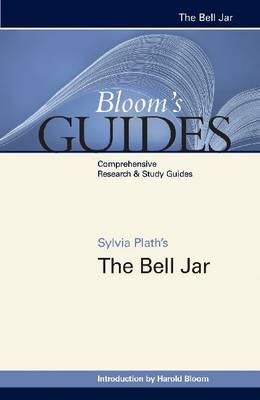4thace reviewed Sylvia Plath's The bell jar by Harold Bloom (Bloom's guides)
Review of "Sylvia Plath's The bell jar" on 'Goodreads'
4 stars
The only novel written by Sylvia Plath is in two parts, her manic internship in New York city and her depressive time back in Massachusetts, set in the early 1950s based on her own experiences. Every aspect of society she sees is a target for scorn for her main character, Esther Greenwood, the people she meets, her assignments at work, what she does on her off time. There is where we hear about her essential directionlessness in her early twenties. It seems as though her ambition has no target anymore so soon after World War II whether that be economic or social or romantic. Esther is impatient to get on with life but too smart to think that it consists of what happens in work or in play. Both seem hollowed out to her, leading to a cynical attitude. The outcome of the food poisoning episode in New York is portrayed as being primarily one of not losing money on the part of the sponsoring company, less of a genuine concern for the young women affected. And yet it comes right after a cutting description of the luncheon as though we were to be led to believe that part of the reason for the illness lay with the behavior of the women themselves. This mirrors somewhat the later part of the book where after leaving New York Esther is back home but unable to continue classes triggering her impulse to self-harm, one which she feels like she's the only one who can take the blame. The portrayal of thoughts of self-harm must have seemed revolutionary in the 1960s. There are authority figures in her life who try to give her guidance: her boss and her mother. And this happens later on as well with the doctors at the sanatorium. Esther see through all this, becomes diffident and unwilling to open up about herself and her pain.
Was this book written primarily as an indictment of the culture of mid-twentieth century America? Was it an attempt to understand deficiencies and tendencies with her within her own personality so as to come to terms with them? Was the author releasing tension about the feelings she had towards the people that led her down a dark spiraling path then? And how much did she consider the production of this novel itself to be a work project originating from her sensibility as an artist? It is easy to conflate tragedy of the author's life with the predicament of Esther, but in fact the book is not all gloom and distress. So much of the early part of the novel is arch and funny. It also ends on a more hopeful note for Esther as she makes it through her descent into institutionalization and shock treatment than one might guess from the way things turned out for Plath.
The world of seventy years ago differs from the present time in a number of ways, many of them quite jarring. What would she have thought about the present abundance of psychiatric medications now that we have? All we know is that the idea of Esther Greenwood on antidepressants and cognitive behavioral therapy would lead to a very different story, perhaps better perhaps not. The men she meets are young louts, including her fiance Buddy. Each episode involving them ends really badly, whether it's a broken leg or a horrible realization about the fellow's personality or an assault. As for the women, Esther knows firmly that she does not want to be like the older female figures around her, executives and nurses and housewives.
The audiobook was narrated by Maggie Gyllenhaal in a forceful and convincing fashion as though she really got what it was like to be Sylvia/Esther. She was able to navigate the many moods the narrative takes in a way that felt natural to me.

